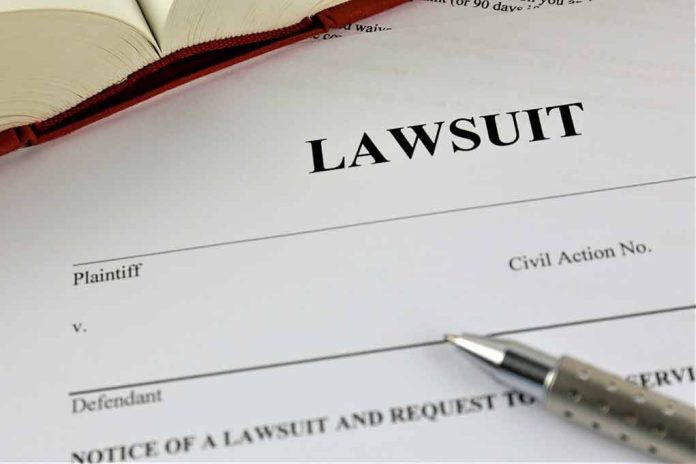
A Rhode Island mom faces a shocking lawsuit from teachers’ unions after simply inquiring about her daughter’s kindergarten curriculum.
At a Glance
- Nicole Solas, a Rhode Island mother, was sued by the National Education Association (NEA) for requesting information about her daughter’s kindergarten curriculum.
- The conflict began in 2021 when Solas discovered lessons on gender ideology and Critical Race Theory in the curriculum.
- Solas claims she was targeted by the teachers’ union, labeled as a threat to public education, and faced harassment for her inquiries.
- The case highlights growing tensions between parents demanding transparency and teachers’ unions across the United States.
- Solas is now advocating for a “Parental Bill of Rights” to protect parents’ rights to access curriculum information.
A Mother’s Quest for Transparency Leads to Legal Battle
In 2021, Nicole Solas, a concerned mother from Rhode Island, found herself at the center of a nationwide controversy when she simply asked to see her daughter’s kindergarten curriculum. What began as a routine inquiry quickly escalated into a legal battle that has drawn attention to the growing tensions between parents and teachers’ unions across the United States.
Solas’s journey began when she discovered that her daughter’s school curriculum included lessons on gender ideology and Critical Race Theory. Concerned about the nature of these teachings, she exercised her right as a parent to request more information. However, her attempts to gain clarity were met with resistance from school officials and eventually led to a lawsuit from the National Education Association (NEA), the largest teachers’ union in the country.
https://twitter.com/nicoletta0602?lang=en
Union’s Unprecedented Move Raises Questions
The NEA’s decision to sue a parent for seeking information about their child’s education has raised eyebrows and sparked debate about the role of teachers’ unions in public education. Critics argue that this move is an attempt to intimidate parents and discourage them from questioning school curricula.
“This brazen and unprecedented act of intimidation by the NEA will not stand,” said Jon Riches, Director of National Litigation at the Goldwater Institute, who is representing Solas. “Nicole Solas is entitled to know what her daughter’s school is teaching in the classroom. She’s entitled to ask questions. And she does not deserve to face legal action just for asking questions any concerned parent would ask.”
The union’s lawsuit argues that some of the records Solas seeks may not be “public” and thus do not need to be disclosed. This stance has further fueled concerns about transparency in public education and the extent to which parents have the right to know what their children are being taught.
A Wider Pattern of Resistance to Parental Inquiry
Solas’s case is not isolated. Across the country, parents are increasingly questioning school curricula, particularly regarding controversial topics such as gender ideology and Critical Race Theory. Many are facing similar resistance from school districts and teachers’ unions.
“The NEA is so determined to push its political agenda that they are willing to expose themselves in a court of law for who they really are: an association of bullies eager to challenge a stay-at-home mom who simply wanted to know what her daughter would be taught,” Nicole said. “This lawsuit won’t deter me from asking questions, and I encourage all parents to do the same, so that they are empowered to make informed decisions regarding their children’s education.”
This pattern of resistance has led to calls for greater transparency in education and increased parental rights. Solas herself has become an advocate for a “Parental Bill of Rights,” which would protect parents’ rights to see the curriculum, be heard, know about school violence, and protect their child’s privacy.
The Broader Implications for Public Education
The conflict between Solas and the NEA highlights a growing divide in American education. On one side are parents demanding transparency and input into their children’s education. On the other are teachers’ unions and some educators who argue that certain curriculum decisions should be left to professionals.
This case raises important questions about the balance between parental rights and educational autonomy. It also underscores the need for clear policies regarding curriculum transparency and the handling of public records requests in schools.
As this legal battle continues, it serves as a reminder of the ongoing debates surrounding public education in America. The outcome of Solas’s case could have far-reaching implications for how schools interact with parents and handle inquiries about curriculum content in the future.






















